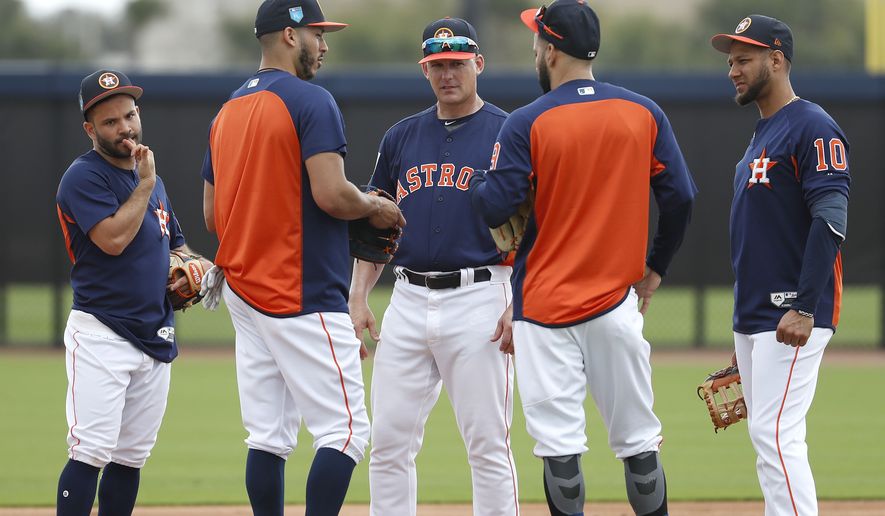Tanking is scourge that must be stopped (unless it’s my team)

By DERON SNYDER (as published in The Washington Times)
According to a familiar school of thought, winning is everything and the only thing. You know, play to win; that’s the name of the game.
When fans spend part of their limited disposable income on tickets, the expectation is that both teams will play hard. The competition presumably will be earnest and honest, with each squad doing its best to come away with a victory.
That’s the case for players on the field, driven by pride if nothing else.
But that’s not necessarily true for executives in the front office.
Take, for instance, the Philadelphia 76ers from 2013-16. No one in uniform was intent on going 47-199 over that stretch. Getting beat night after night is no fun, even though direct deposits remain unaffected.
The players were trying, but then-GM Sam Hinkie was tanking.
His strategy of constructing non-competitive rosters paid off in terms of four consecutive top-three draft picks, including a pair of No.1s. But it didn’t prevent his firing and Philly is still years away from a championship that might never materialize.
For a better example of turning deliberate failure into unqualified success, look across the Washington Nationals’ complex in West Palm Beach. There, the Houston Astros are preparing to defend their World Series championship.
From 2011-2013, they lost 106, 107 and 111 games, respectively. It wasn’t an accident. Butt by 2014 – when Sports Illustrated ran a cover story correctly predicting Houston’s title last season – they had one of baseball’s deepest farm systems.
The Astros’ favorable outcome, along with the Sixers’ uptick (currently seventh in the Eastern Conference), has amplified discussions about teams playing to not win.
“I’m probably not supposed to say this,” Dallas Mavericks owner Mark Cuban said recently on a new podcast hosted by Julius Erving. “But I just had dinner with a bunch of our guys the other night, and here we are, not competing for the playoffs. I was like, ‘Look, losing is our best option.’”
Cuban’s instincts about the propriety of his comments were correct, because NBA commissioner Adam Silver fined him $600,000 Wednesday.
Other owners won’t be so forthright, but Dallas could have plenty of company. The most intriguing NBA race down the stretch isn’t Golden State vs. Houston for homecourt advantage. It’s Atlanta vs. Dallas vs. Memphis vs. Orlando vs. Phoenix vs. Sacramento – the six teams tied for the league’s worst record coming out of the All-Star break.
And watch out for Chicago, just two games off the pace.
(Brooklyn, only a game out of last place, would be a contender. But the Nets don’t own their pick and, therefore, have nothing lose for.)
To dissuade teams from blatant, Sixers-like tanking, the league instituted rule changes for the draft lottery beginning next season. The worst teams will have lower odds of landing a top-three pick. But teams in the middle will have better chances of moving up from, say, No. 8 to No. 5.
That might be enough incentive for a large pack of losers to keep on keeping on.
MLB Commissioner Rob Manfred has his own problems to worry about. Perhaps a dozen teams are trying to copy the Astros’ plan, which traced the blueprint used by the 2016 World Series champion Chicago Cubs.
With the hot stove season resembling a deep freezer, and scores of prominent free agents unsigned as spring training began, Players Association president Tony Clark accused teams of fraud. He said their “race to the bottom” is an affront to fans and “threatens the very integrity of our game.”
Here’s the problem: I don’t think fans today in Houston and Chicago care that the teams were putrid for a few years before winning it all. I believe most fans would prefer that model opposed to winning 80 games every year and never contending for a championship.
However, that strategy comes with some risk.
Executives count on fans returning after tuning out during the irrelevant, dreadful lost seasons. Overall, for an industry that needs to create new fans in a crowded entertainment environment, it can’t help if one-third of the franchises put a pitiful product on the field.
But it can make sense on an individual basis. Where does a commish draw the line?
“I don’t buy into the concept that when a club adopts a strategy of rebuilding, that should be characterized as tanking,” Manfred told reporters Tuesday during the Cactus League’s media day.
“I think there are clubs – all of them – that want to win. That’s why the owners own. … The question is what strategy are they going to adopt over what period of time to put themselves in a position to win?
The notion of rebuilding isn’t new. Teams have done so without shame for decades.
But nowadays – with so much focus on luxury taxes, ping pong balls, analytics, revenue sharing, salary caps and international signing pools – teams don’t engage in rebuilds. They tank.
It’s an act that violates the spirit of competition.
May all those who engage (except my teams) be rewarded with nothing but more losses, now, henceforth and forevermore.
— Brooklyn-born and Howard-educated, Deron Snyder writes his award-winning column for The Washington Times on Tuesdays and Thursdays. Follow him on Twitter @DeronSnyder.
 Follow
Follow
